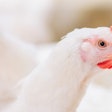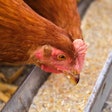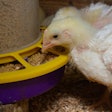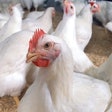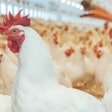Feed industry professionals recently gathered in Nashville, Tenn., for USPOULTRY’s 2022 Feed Mill Management seminar. Discussions focused on topics from ensuring feed mill biosecurity to FMSA compliance and worker safety.
With the recent confirmations of highly pathogenic avian influenza (HPAI), biosecurity was a fitting topic for the program. Dr. Charles Starkey, assistant professor at Auburn University, provided several recommendations and considerations that should be evaluated when determining the viability of a feed mill’s biosecurity program. He also emphasized the importance of ensuring that sampling of feed is done in an appropriate, aseptic manner.
Many of Dr. Starkey’s points were also echoed in the Food Safety Modernization Act (FSMA) update provided by Gary Huddleston, director of feed manufacturing and regulatory affairs at the American Feed Industry Association. The FSMA regulatory update and inspection results were an illuminating comparison of the past few years of FSMA compliance, serving as a reminder that feed mills should expect an increase in inspection activity. The majority of inspections did not reveal deficiencies but can be disruptive to the normal operation of the mill, nonetheless. Ensuring that workers are trained on the FSMA plan, company policies on materials that are proprietary and confidential, and what materials must be made available to the inspector, were key points of Huddleston’s presentation.
Rick Fleming, EH&S manager, Wayne Farms, provided an in-depth discussion on some of the primary causes of workplace injuries, including slips, trips and falls. He provided a broad perspective on walking working surfaces in the feed mill. His discussion included several important considerations that are pertinent to feed mills and ensuring the safety of employees. Coming changes to OSHA regulations were also discussed, particularly in relation to ladder safety and structure. Another highlight of Fleming’s presentation was an update and explanation of personal fall arrest systems.
The use of antibiotics in an ABF broiler mill was discussed by Mark Daniel, technical services manager for Evonik Corporation. Key takeaways from this segment included vectors for cross contamination and ensuring that feed mill employees understand the importance of segregating medicated and non-medicated feed. One way to prevent cross-contamination of feed is through application of sequencing in batching and dispatching feed, to ensure that residues of antibiotics are not present in unintended loads of feed. Dye flushes were discussed as part of a flushing system, and the importance of inspecting mill components to ensure that residues are removed was emphasized.











